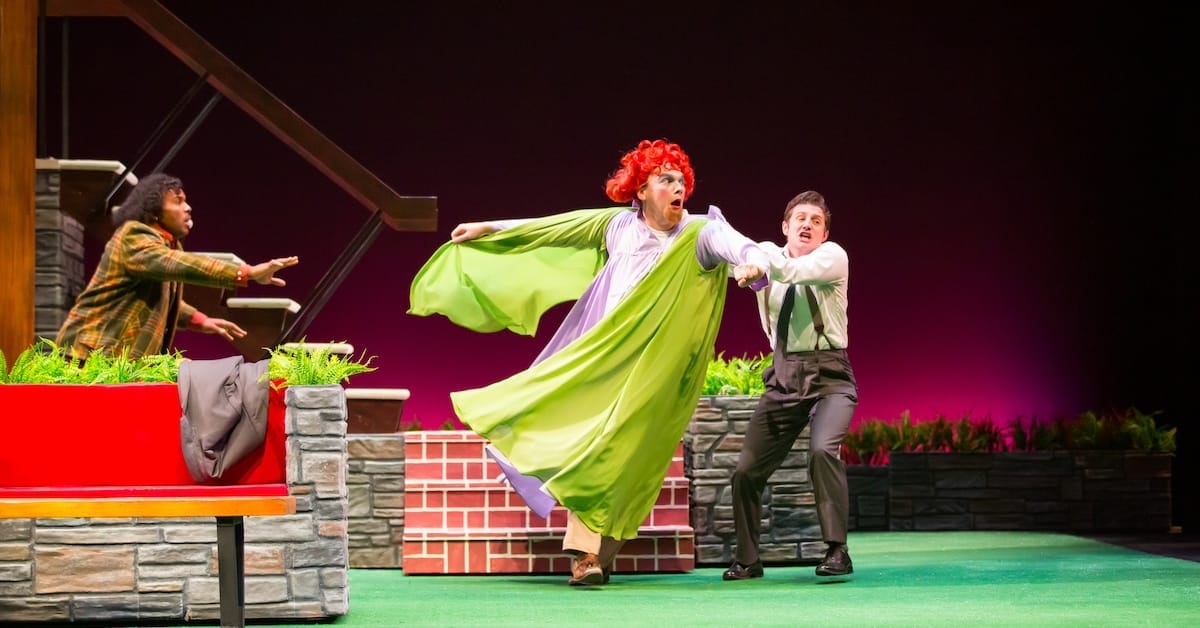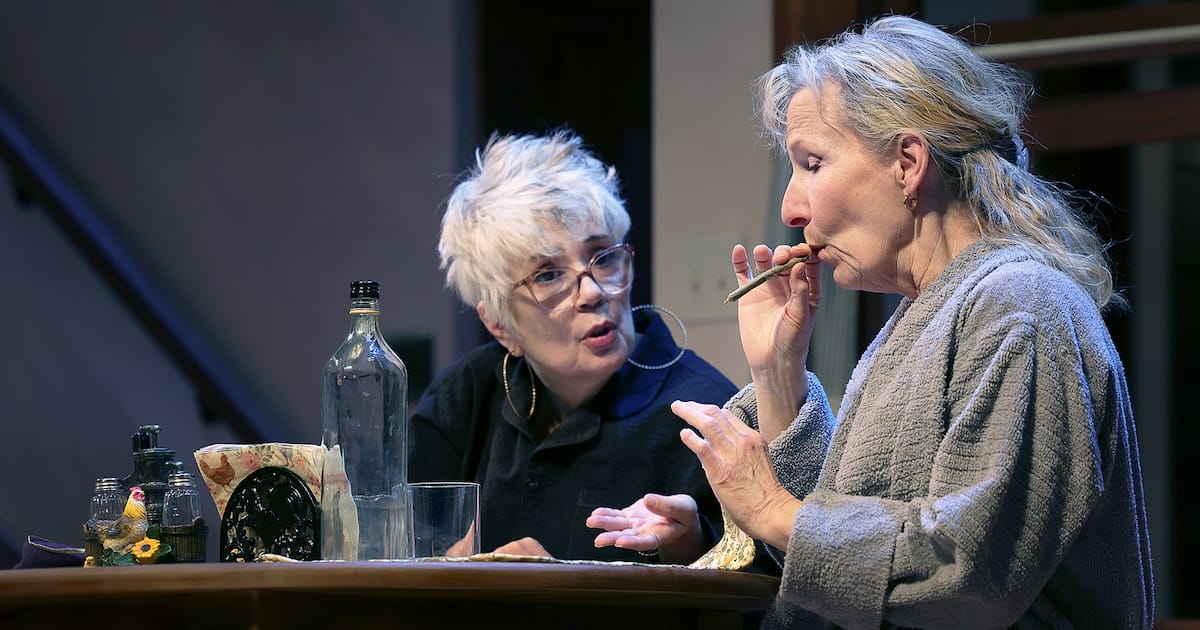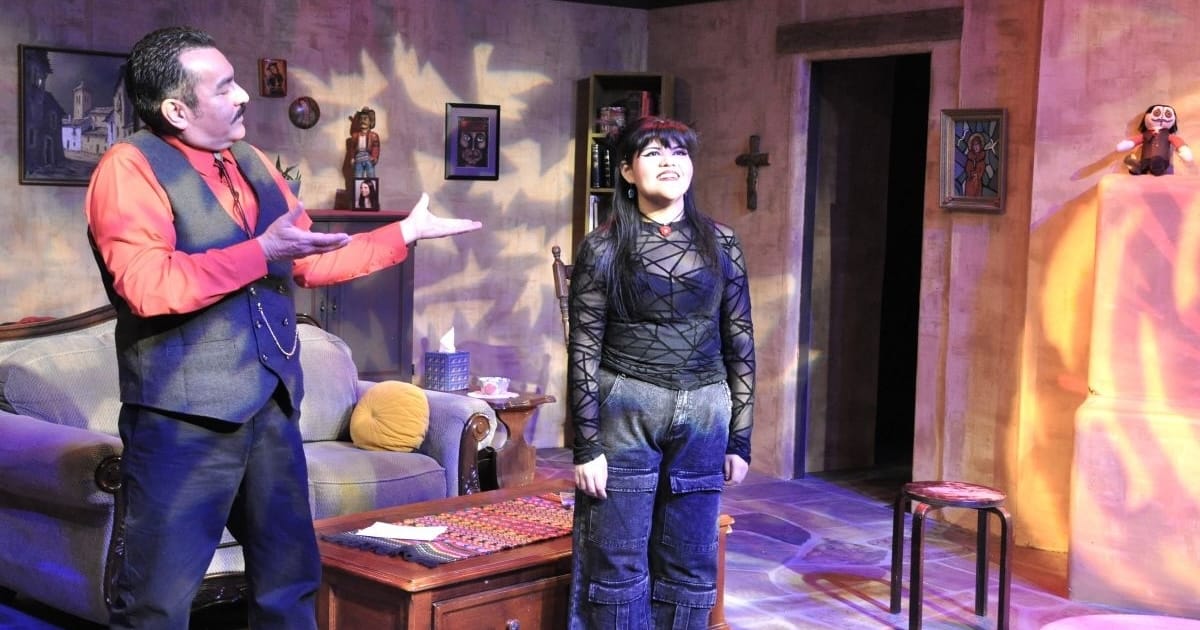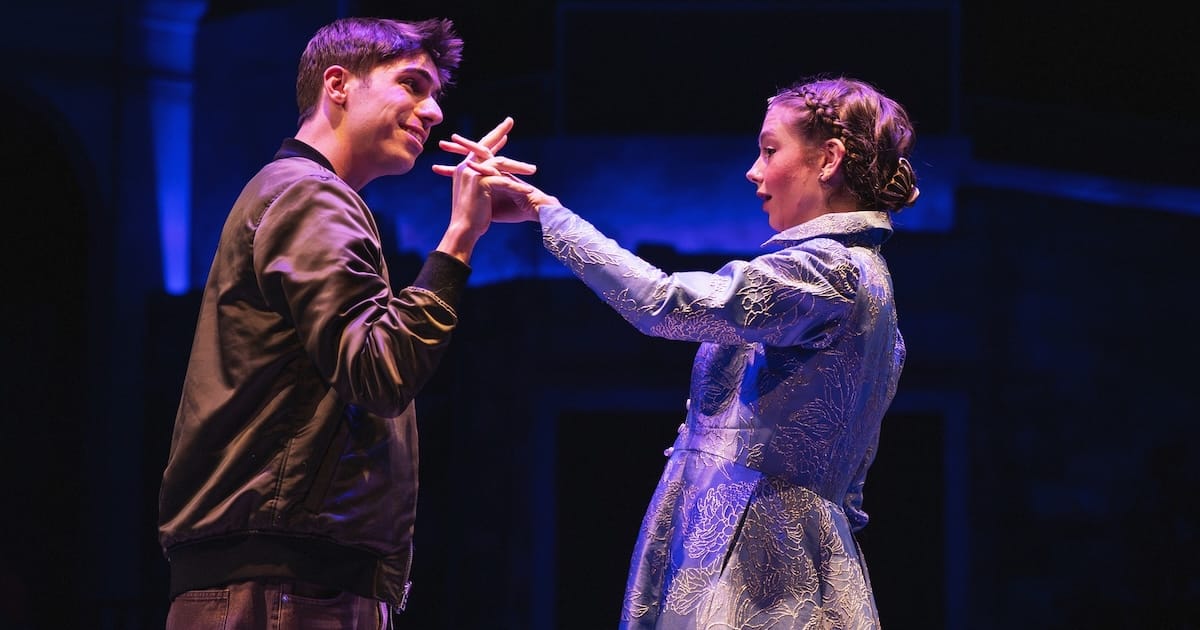It’s hard to comprehend what director Kevin Rich, a veteran of many Colorado Shakespeare Festival productions, was thinking when he headed this production of The Merry Wives of Windsor. It might be more accurately titled “French Farce Meets Shakespeare.” From the opening scene through to the final one, this is nonstop slapstick; the shenanigans are so overdone and so in-your-face that they completely overwhelm the clever dialogue, the characterizations of the actors and the complex story lines (which are often hard to follow here) of Shakespeare’s original.
My experience with this company has generally been good; although the troupe does not hire big name stars or directors, the shows typically capture the spirit and language of the Bard’s creations.
There’s no question that “Merry Wives” lends itself to great fun. In the other productions I have seen, there were certainly some sight gags and physical humor. But they permitted the actors to speak their lines clearly enough to be understood and to convey the comedy of manners that is at the heart of this play.
Technically Merry Wives is considered a “citizen comedy,” a form popular in Shakespeare’s time. These were comedies set in the Elizabethan period (rather than the historic or mythic eras Shakespeare usually evoked) and featured mostly middle-class characters rather than kings and aristocrats.
Another key element in the play was the sense of a coherent local community that provided the background against which the comings and goings of citizens were set. And although there were no monarchs, these comedies did contain a few upper-class characters, providing for a juxtaposition of attitudes and behaviors between them and the middle class.

Jessica Robblee as Mrs. Page and Shunté Lofton as Mrs. Ford in ‘The Merry Wives of Windsor’ | Photo: Jennifer Koskinen
Over the top
Like many directors, Rich has chosen to update the environment from the original to the 1970s, complete with a few references to American sitcoms of that time like “Three’s Company,” and ’70s period costumes (bright colors, mismatching patterns, bell bottoms). Rich apparently intended to draw parallels with what was happening in England when Shakespeare wrote the play (civil unrest, an unpopular war, an uncertain political future) and the turmoil of the ’70s, but the effort falls flat. He has made the antics of the characters so outrageous and so incessant that it’s hard to pay attention to anything but the physical activities.
This is a shame since, insofar as we can tell from the buffoonery, the actors are talented, although their diction is sometimes less than clear — probably because the demanding physical action takes so much of their attention. But their ability to easily manage their physical highjinks — like running upstairs, falling on the floor and generally cavorting around the stage — is impressive.
There is so much more to this play that Rich has pushed to the side in service of the silliness that the social satire, smart caricatures and whiplash verbal jokes of Shakespeare’s play are lost. One of the elements that is most obviously missing is the culture clash between the upper crust (but ridiculous) Falstaff and the two married, middle-class women he is trying to seduce to get at their husbands’ money. In a more thoughtful and less rambunctious version of the play, the women should drive the action. But here their constant physical overactivity prevents them from taking the time to convey the conniving motivations that move the narrative forward.
Having said all this it is important to acknowledge that Merry Wives is not an easy play to stage. Although it was extremely popular in its time, over the years critics have deemed its plot overly convoluted and its satire less than sharp. But judging from personal experience I can say that it is possible to create a version that is totally engaging and worthy of the belly laughs it occasionally provokes. Unfortunately, this is not one of those.
Alice Kaderlan is a long-time dance and theatre critic and general arts writer. She has written for newspapers and online news sites in Seattle, Washington D.C., Pittsburgh and other cities for more than 40 years. She has also appeared on various public radio stations including WAMU-FM in D.C. and KUOW in Seattle and covered arts for NPR. She currently lives and writes in Denver.






Leave A Comment